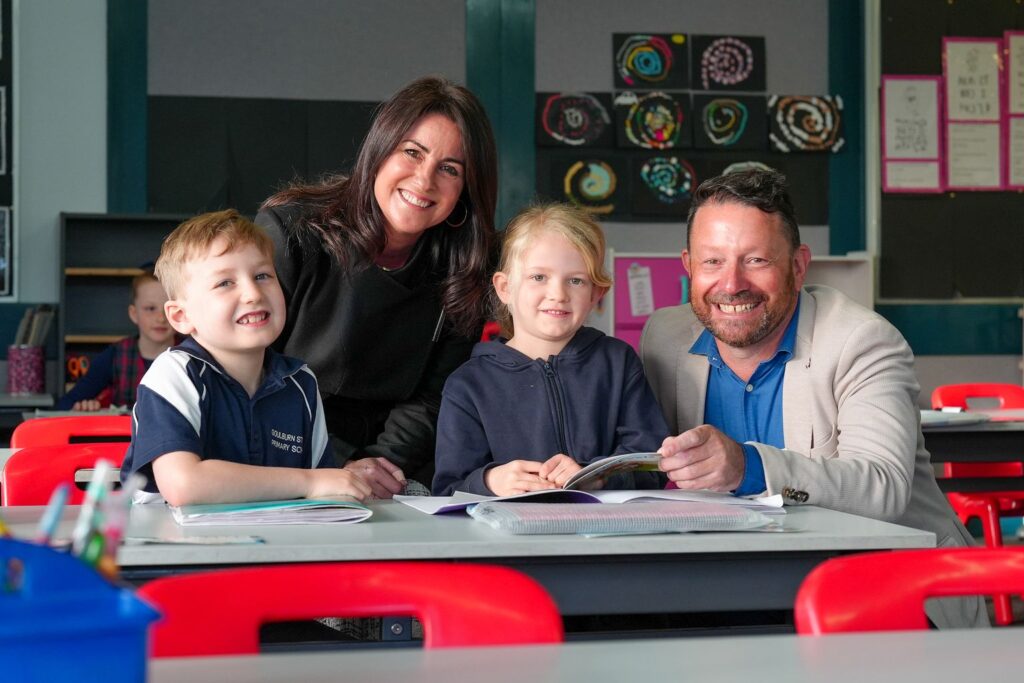Children struggling with reading in Tasmanian schools will get extra support under a $10 billion education budget that puts literacy at the centre of the state’s learning agenda.
Education Minister Jo Palmer announced the funding package at Goulburn Street Primary School in Hobart yesterday, describing it as a quarter of the entire government budget aimed at achieving 100% literacy.
The key element is a $12 million injection specifically targeted at “supercharging” literacy outcomes through structured teaching methods already showing promise in classrooms across the state.
“We want children to love learning and teachers to love teaching,” Palmer said. “Everything that we have done in the budget has those two things in mind.”

The funding will give schools direct support, allowing principals to send teachers for professional development without having to cover the cost of relief staff from their own budgets.
Schools will also receive decodable readers, classroom book sets and updated curriculum resources.

Palmer said the package was developed after consulting with teachers and principals about what they need most.
Principal Michael Park from Goulburn Street Primary said his school had been using structured literacy approaches for four years with good results.
“The biggest challenge for our teachers is having the resources and the time to actually train themselves to build their knowledge,” Park said.
The approach has been particularly effective in early intervention, with Park’s school now able to identify and support struggling readers before they reach the critical grade three milestone.

“We’ve picked them up in prep and made sure we’ve got the resources and the supports in place to make sure those students are not behind by grade three,” he said.
He added that teachers feel more confident helping students and parents appreciate being kept informed about their children’s progress.
Beyond literacy, the budget will include $296 million for infrastructure over four years, covering four new child and family learning centres, teacher residence upgrades and upgrades for 23 priority schools.
Another $10 million will go towards upgrading school playgrounds and sports courts and a further $10 million will support students with disabilities, adding to an existing $176 million in funding.






